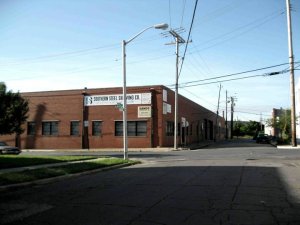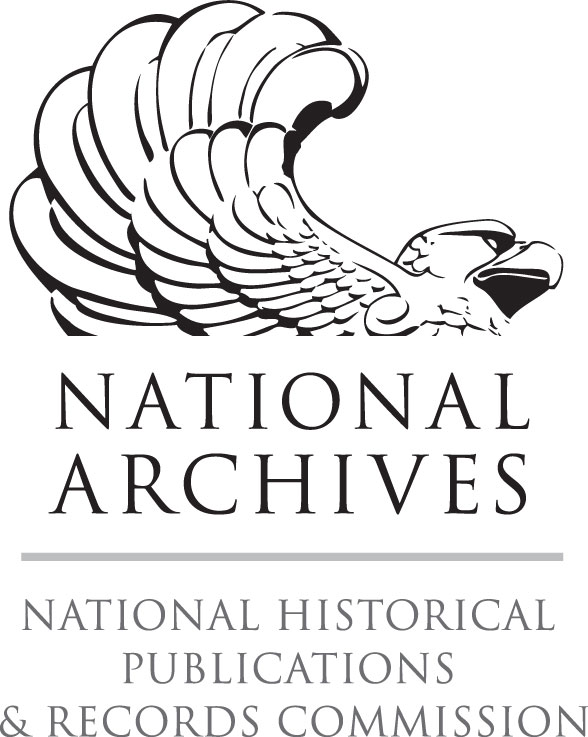About the Archives
Authority
The Baltimore City Archives (BCA) is designated by the Maryland State Archives as a local archives pursuant to COMAR 14.18.03. The function and purpose of the City Archives and Records Management Center are described in Baltimore City Charter (Article VII, § 93 (ii)) as part of the Department of Legislative Reference. Baltimore City Code (Article 1, § 10) also describes records management mandates for all City agencies, with the goal of responsible stewardship of both non-permanent City records and records of enduring historical value.
Since 2010, BCA has been co-administered by the City's Department of Legislative Reference and the Maryland State Archives under an intergovernmental agreement. Key staff include:
- Ben Guthorn, Director of Legislative Reference
- Rob Schoeberlein, PhD, City Archivist
- Carey Stumm, City Records Management Officer
- Jeni Spamer, Deputy City Archivist
Mission
The mission of the Baltimore City Archives is to collect and preserve the administrative records of Baltimore City government that have enduring historical value, and make them accessible to the public.
The mission of the City Records Management Program is to organize and supervise the overall management of City government records, including determining their appropriate retention, storage, and disposition.
Collection Policy
The Baltimore City Archives (BCA) collections consist primarily of the official records of City agencies, departments, bureaus, divisions, and officials, as created in the transaction of public business.
The BCA does not collect general historical items relating to Baltimore City history, privately-owned properties within City limits, private organizations, or individual citizens, unless they intersect with City government business. Donations of general historical materials about Baltimore City or Baltimoreans are referred to other local archives or museums.
Examples of non-City government records that may fall within our collecting policy include:
- Personal papers of an individual who was an employee of Baltimore City government, especially when the material relates directly to the work they performed, such as the papers of a former City Council member that contain materials relating to Council business or the person's political career.
- Records of an organization that has a history of partnering with the City, such as the records of a private not-for-profit entity that received support from the City, or was at one time a City agency that became a quasi-governmental entity.
- Photographs or publications that include subjects relevant to City government affairs, such as City officials and employees, departmental activities, City-sponsored special events, or City-owned buildings.
Donations
Individuals wishing to donate historical materials associated with private individuals or private organizations that do not fall into the City Archives collection policy should contact an appropriate local archives or museum, such as:
University of Baltimore Library, Special Collections Department
Collection focus: Baltimore City non-profit organizations, community associations, special interest groups and clubs, or prominent Baltimoreans
Maryland State Archives, Special Collections
Collection focus: documentary materials, including records, manuscripts, publications, photographs, artwork, and audio-visual media that represent significant Maryland historical topics, events, cultural groups or individuals
Baltimore Museum of Industry Archives
Collection focus: Baltimore-related business records, documents, oral histories or objects related to local industries and workers
Maryland Center for History and Culture
Collection focus: Maryland-related manuscripts, photographs, artwork, ephemera and objects
Reginald S. Lewis Museum Archives
Collection focus: Maryland and Baltimore African American history-related materials and objects of all subjects
Morgan State University, Special Collections
Collection focus: Morgan alumni-related papers and collections, especially documenting the African American experience in Maryland
Enoch Pratt Free Library, Special Collections
Collection focus: general Maryland-related collections of various formats
Johns Hopkins University Libraries, Special Collections
Collection focus: Hopkins alumni-related papers and collections, as well as maps, manuscript collections, photographs, rare books, oral histories and other materials of diverse topics
Mid-Atlantic Regional Moving Image Archive (MARMIA)
Collection focus: film and video footage from regional organizations and individuals (ie., home movies) from Maryland and the surrounding region
Definition of Government Records
Administrative records of Baltimore City government include all books, documents, emails, reports, maps, photographs, permits, plans, receipts, contracts, websites, videos, data or any other medium of documentary material that is created or received by an employee of City government in the course of their work.
Records document the transaction of public business by City agencies, and provide evidence of the organization, functions, policies, decisions, procedures, operations, or any other activities of City government.
Importantly, records can be tangible, like paper, but also intangible digital files.The format the record was originally created in determines what is considered the original, authentic record.
Authenticity is important to establish the legal and factual power of a record as historical evidence. For example, the original record of a memo created in Microsoft Word would be the computer file saved by its creator, which contains all the metadata about its creation and modification. A printout of the memo would only be a copy - it might have been modified from the original, and without the digital source file, there would be no way to prove that. In the same way, a signed paper document is an original record, but a scan of that document is not.
Definition of government records references 44 U.S.C. 3301, Federal Records Act.
Retention Period
Government records are considered to have either non-permanent (temporary) or permanent retention periods. To determine which, the City Archivist and the City Records Management Officer consult with representatives of the agency that produces the record. Permanent records have been agreed to have enduring historical, informational, or legal value. Permanent records become part of the City Archives collection and many may be freely accessed by the public.
Non-permanent records have time-limited informational or legal value for City government operations, but no historical value. Non-permanent records are retained for a specific period, such as 15 years, during which they may be actively used or referenced by City employees, auditors, or others as appropriate. Retention periods for some records may be governed by laws meant to ensure government compliance with other laws and statutes. Once the specified retention period documented on an official retention schedule has elapsed, non-permanent records may be securely destroyed.
Maryland State law, as well as Baltimore City Code, stipulates that all original government records remain government property until all applicable rules and policies have been followed regarding their proper retention and disposition. It violates State law and Maryland State Archives policies website, especially the Regulations section. For more information about City records retention schedules and transfers, see the City Records Transfers website.
Directions:
 The Baltimore City Archives is located at 2615 Mathews Street, Baltimore, MD 21218. It is in a one-story red brick warehouse shared with the Southern Steel Shelving Company. There is a "Baltimore City Archives" sign above the main door on Mathews St.
The Baltimore City Archives is located at 2615 Mathews Street, Baltimore, MD 21218. It is in a one-story red brick warehouse shared with the Southern Steel Shelving Company. There is a "Baltimore City Archives" sign above the main door on Mathews St.
Volunteer Program:
The Baltimore City Archives operates with a very small staff and appreciates the assistance of people willing to volunteer for a variety of tasks including shelving records, scanning, inventorying, and data entry. Furthermore, students looking for practical field experience in archives work are welcomed. If you would like to volunteer, please write to msa.bca@maryland.gov providing contact information and an idea of when and how much time you might be able to volunteer.

